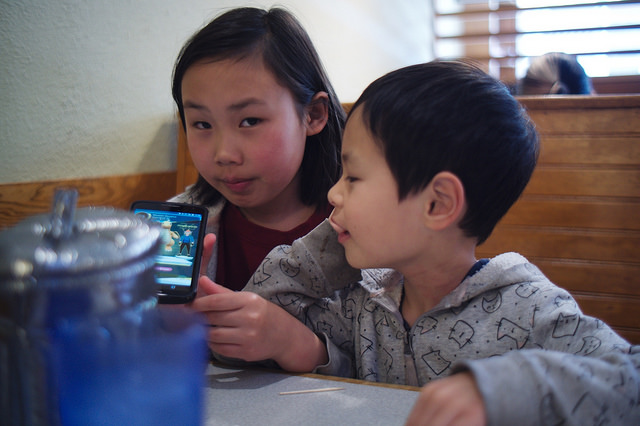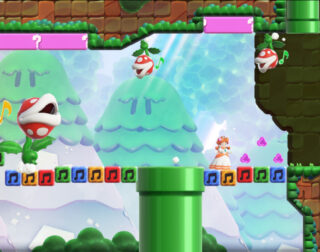With summer vacation upon us, you might be wondering if you’ll be able to keep your kids busy all summer long. As a parent, you want to insure that your kids have something productive to do and don’t spend the majority of the time glued to their screens and technologies. If your child has ADHD, it is even more important that you find some alternative to an endless amount of screen time this summer. You know that hours upon hours of playing Minecraft, watching YouTube videos, or Instagramming friends might be your child’s preferred activity. But for kids with ADHD, outdoor time, exercise, and opportunities to engage with peers are crucial to Improving their, social, and executive functioning, and focusing skills. At the most basic level, too much time spent in front of a screen takes away from these other activities.
Let me be clear: not all screen time is bad for kids, but many children with ADHD overdo it and may struggle to transition from screen time to other play time. One strategy, and a necessary one for many parents of kids with ADHD is to set clear and effective limits on a child’s screen time during the summer. I have written extensively about this on Learningworksforkids.com and also spoken about it frequently in my webinars for Attitude magazine.
But rather than focusing on setting limits this summer, I’d suggest that parents recognize that digital play (using screen-based technologies and digital media) is not in itself problematic, but that the danger is that it takes away from other forms of play. There is compelling data that playing video games for an hour a day can actually be helpful to children’s psychological and academic performance. However, too much time spent in front of a screen takes away from other activities that promote learning and skill development and this issue is even more important for children with ADHD.
This summer is an ideal time to create a reasonable blend in your child’s play activities–what I refer to as a healthy Play Diet where kids are expected to have a balance of social, physical, creative, unstructured, and digital play. In order for parents to help their kids have a healthy Play Diet, they need to work at it. They need to be willing to be a chauffeur, banker, and playmate. To learn more about creating a healthy Play Diet I would encourage parents to read my book, my book, Playing Smarter in a Digital World, and think about how they can model their own healthy Play Diet where they spend less time in front of a screen and more time outdoors and involved in physical activities and hobbies .
I’d like to offer an alternative strategy that parents might want to try this summer with their kids with ADHD. This approach uses your children’s interest in screen-based technologies as a tool to encourage other activities. Essentially, I am suggesting that you take your child’s love of technology and leverage it into activities that gets them outdoors, facilitates the growth and development of new hobbies, and forces them to engage with peers and family on a face-to-face basis. Here are a few ideas:
Take pictures together. Kids love to use their phones to take pictures. Encourage your kids to take piles of pictures particularly involving family activities, such as eating dinner, going to visit relatives, or even a trip to the supermarket. Have your child post these pictures on a family website that they create and share them with other relatives.
Watch nature videos together that can spur exploration. While you may not be able to visit Sequoia National park after watching a video, you can find places to explore in your vicinity where there are large trees. I would suggest that you and your kids select videos and TV documentaries where the content is about local natural resources or something that applies to the region where you live. For example if you live close to the ocean, documentaries on sharks, shells, and sea life would be a good reason to go and explore the beach. If you live near forests or mountains, finding information about wildlife in and plants will be useful. There are some great sources of documentaries on TV channels such as Animal Planet and National Geographic. Videos on nature that have been selected for kids can be found at Smart Feed and Brain Feed.
Play outdoor video games. For video gamers, the summer of 2016 was highlighted by the phenomena of Pokémon GO. There are still millions of kids and parents playing Pokémon GO and if you haven’t played I strongly suggest you give it a try. Not only is it fun, it requires a lot of walking and exploring. Sometimes you might choose to use your bikes to collect more Pokémon.
Use exercise technologies. Get everyone in the family a fitness tracker or get an app for your cell phone for tracking fitness and exercise. Owning these technologies is great, but only if you use it. The best way to involve your kids is to create a family competition in which everyone tracks their exercise over the course of each week. Then the winner of each weekly contest gets to choose a family activity such as a restaurant you’ll go to, movies that you rent, or choice of a day trip vacation. it is crucial that this type of family competition is set up in such a way that everyone has a chance to win and that your kids have some input into the rewards.
Make summer screen time into a fun, learning opportunity. Rather than fighting the technology, curate it. In other words choose and use games and apps this summer that you actually want your kids to play. Here are some suggestions for games that your kids will love but that will help them to learn some of the skills that are very important for kids with ADHD.
For other game and app suggestions, and how they can help your child build skills while still having fun, see our playbook library.
Featured image: Flickr user mliu92





